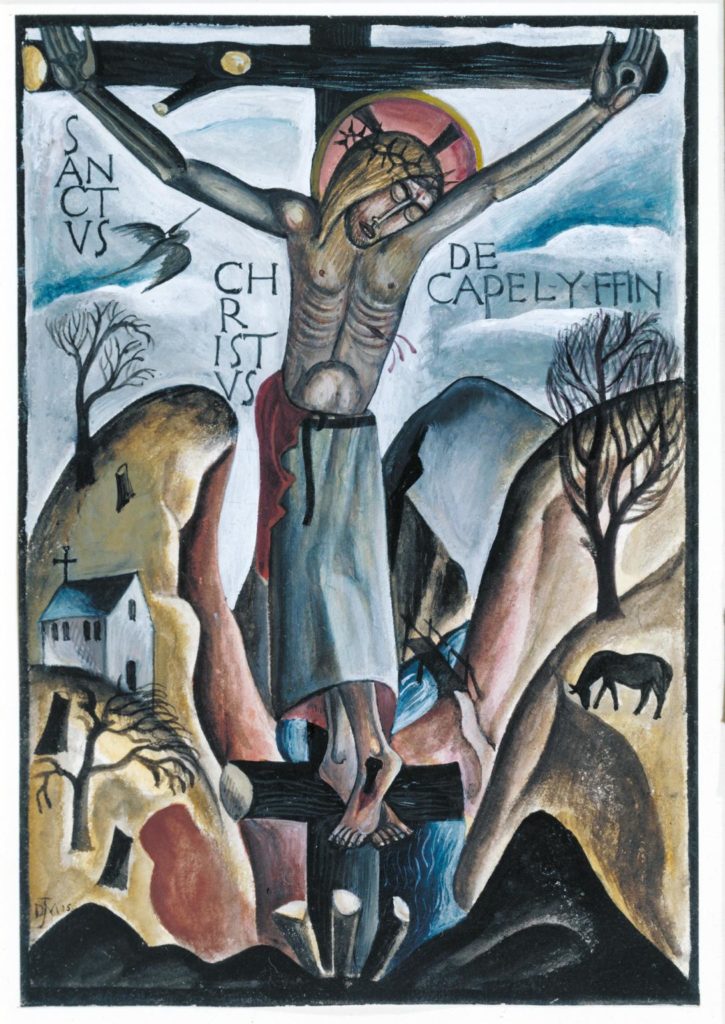There is a largely unsung group of people around us who spend great swaths of their lives caring for others, often impairing their own wellbeing in the process. Their quiet, loving care for parents or sons or daughters or neighbors – and the time, inconvenience, and effort that are involved – manifests the human face of the Catholic response to suffering.
Saint John Paul II said a very striking thing: “what we express by the word ‘suffering’ seems to be particularly essential to the nature of man. It is as deep as man himself, precisely because it manifests in its own way that depth which is proper to man, and in its own way surpasses it. Suffering seems to belong to man’s transcendence: it is one of those points in which man is in a certain sense ‘destined’ to go beyond himself, and he is called to this in a mysterious way.” (Salvifici doloris) There is a transcendent dimension to suffering when we approach it as Christian caregivers ought to do.
Suffering people and everyone who cares for them are drawn into the mystery of human suffering, whether they like it or not. Day-in and day-out, the mystery of suffering is faced by people who understand that they follow the crucified Lord. It is one of the great mysteries of life that God chose to bring us salvation precisely through this common feature of all human existence.
So for the suffering individual, isolated, lying perhaps in a damp hospital bed, on tubes, or even worse, John Paul II could affirm something momentous: “It can be said that man in a special fashion becomes the way for the Church when suffering enters his life.” And caregivers have their own type of suffering by association – and so they too can “become the way for the Church.”

The Church becomes more powerfully present in space and time as everyone in the caring circle becomes more deeply engaged in sharing in the sufferings of Christ. If they wish it, their whole humanity becomes engaged in the supreme act of sacrifice that ever happened on this planet.
As good caregivers already know: “Human suffering evokes compassion; it also evokes respect, and in its own way it intimidates. For in suffering is contained the greatness of a specific mystery. This special respect for every form of human suffering must be set at the beginning of what will be expressed here later by the deepest need of the heart, and also by the deep imperative of faith.”
Something profoundly human is taking place here. Everybody involved is touched at the very depths of his or her existence as a believer before God, and as a member of the community of the Crucified One, by a broad range of things: from the simple sharing of the meaning of the crucifixion to the very heights of mystical prayer.
One feature of Church life becomes more weighty during such experiences. In fact, “Sacred Scripture is a great book about suffering.” The Scriptures help us to respond to situations because they are stories of the suffering of the People of God as they live in His hands.
There is an important point to be made here: “In the vocabulary of the Old Testament, suffering and evil are identified with each other.” The suffering individual is facing evil as Christ does – which means also taking the consequences.
The great human mystery is that “only the suffering human being knows that he is suffering and wonders why; and he suffers in a humanly speaking still deeper way if he does not find a satisfactory answer.” This is closely tied in with the mystery of evil. Why is there evil? We don’t entirely know, but “In the Book of Job the questions [have] found their most vivid expression.”
John Paul II then cited Job himself: “For thou art just in all that thou hast done to us, and all thy works are true and thy ways right, and all thy judgments are truth. Thou hast executed true judgments in all that thou hast brought upon us. . .for in truth and justice thou hast brought all this upon us because of our sins.” (Job 4:8) In a way, the Book of Job presaged the “Passion of Christ.
It is the glory of the New Testament message, however, that: “The eloquence of the Cross and death is completed by the eloquence of the Resurrection. Man finds in the Resurrection a completely new light, which helps him to go forward through the thick darkness of humiliations, doubts, hopelessness and persecution.”
Here is the mystery of faithful people’s life in the Church. Those who are suffering and those who care for them can grasp it more concretely than anyone else. It centers on a sometimes overlooked dimension of revelation: “The gospel paradox of weakness and strength often speaks to us from the pages of the Letters of Saint Paul, a paradox particularly experienced by the Apostle himself and together with him experienced by all who share Christ’s sufferings.”















